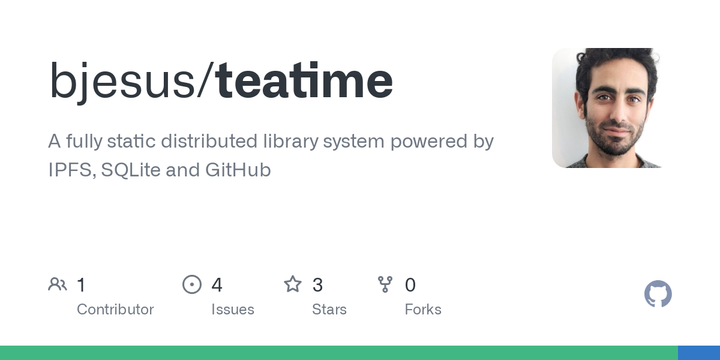Show HN: TeaTime – distributed book library powered by SQLite, IPFS and GitHub
yoavm Wednesday, November 27, 2024
Recently there seem to be a surge in SQLite related projects. TeaTime is riding that wave...
A couple of years ago I was intrigued by phiresky's post[0] about querying SQLite over HTTP. It made me think that if anyone can publish a database using GitHub Pages, I could probably build a frontend in which users can decide which database to query. TeaTime is like that - when you first visit it, you'll need to choose your database. Everyone can create additional databases[1]. TeaTime then queries it, and fetches files using an IPFS gateway (I'm looking into using Helia so that users are also contributing nodes in the network). Files are then rendered in the website itself. Everything is done in the browser - no users, no cookies, no tracking. LocalStorage and IndexedDB are used for saving your last readings, and your position in each file.
Since TeaTime is a static site, it's super easy (and free) to deploy. GitHub repo tags are used for maintaining a list of public instances[2].
Note that a GitHub repository isn't mandatory for storing the SQLite files or the front end - it's only for the configuration file (config.json) of each database, and for listing instances. Both the instances themselves and the database files can be hosted on Netlify, Cloudflare Pages, your Raspberry Pi, or any other server that can host static files.
I'm curious to see what other kinds of databases people can create, and what other types of files TeaTime could be used for.
[0] https://news.ycombinator.com/item?id=27016630
[1] https://github.com/bjesus/teatime-json-database/
[2] https://github.com/bjesus/teatime/wiki/Creating-a-TeaTime-in...